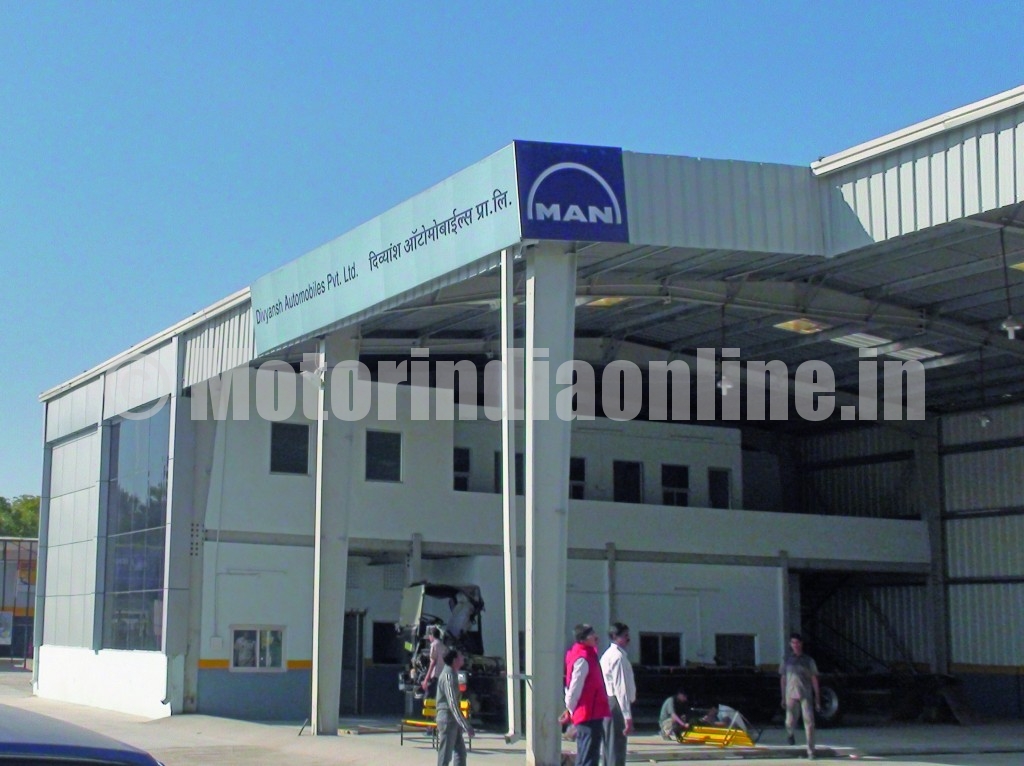
At the age of sweet seventeen, Sandeep Moondra – well, that’s how he spells his surname – knew he would get into his father Hukumchand Moondra’s automotive-related business when he graduates with a degree to boot. National Tyres was – and is – a name to reckon in Jaipur, Rajasthan in their chosen field. Be it for two-wheeler, three wheelers, passenger cars or trucks, National Tyres was one of the most-known address in the state capital.
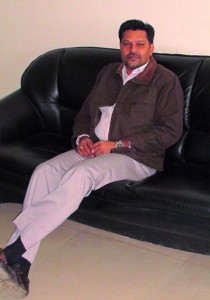
So, diversification or forward integrating into truck business is nothing unusual or extraordinary. Originally, Jaipur was not their chosen area to get into a truck dealership. Another vehicle manufacturer had chosen Divyansha Automobiles, a group company, for its dealership in Ajmer but challenges in land acquisition kept the issue on hold. That’s when German trucking and bus giant MAN knocked on the doors of the Moondras asking them: “Hey guys, how about doing something with us in Jaipur and serving a few more districts?” Instead of twirling their collective thumbs on the fate of their proposed earlier dealership,the Moondras plunged head long into tango with the German giant.
Dealing with European multinationals did not pose any challenge since Divyansha is already working alongside French tyre giant, Michelin, for the past four years in spearheading Michelin Tyre Service Centres at two locations in Rajasthan. “We were not babies and we understand the Indian trucking industry inside out, through our tyre business for every segment and it was never a challenge to work with MNCs. On the contrary, their insistence on systems and processes is good for running any business,” explains Sandeep Moondra, Director and son of promoter Hukumchand, seated in his Jaipur corporate office.
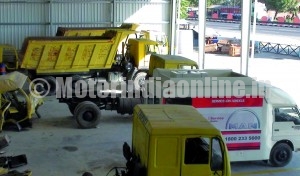
MAN Trucks India Pvt. Ltd. was equally keen to restart its Indian innings post its business relationship with Force Motors under the banner of Man Force Trucks Pvt. Ltd. since inking the joint venture in 2006. In 2011, it took over the JV to become a whole subsidiary of MAN Truck & Bus AG to manufacture heavy MAN CLA Trucks for the Indian Market and for export to Asian, African and CIS countries. The range of products manufactured includes mining and construction tippers, haulage tractors and multi-axle Trucks, from 16T to 49T at its state-of-the-art manufacturing facility at Pithampur, Madhya Pradesh, having an installed capacity of 24,000 trucks per year.
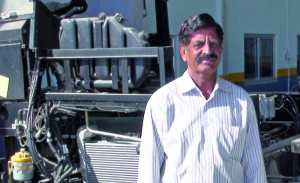
Mukesh Mundra, Director (Sales & Marketing), Divyansha Automobiles, reiterates Sandeep’s viewpoint that given the fact that the customer segment is the same, to move into truck selling – besides Tata axles and tyres – was a natural corollary. “MAN product range is good and there is a huge demand for heavy duty trucks from the construction and mining industry,” points out the lanky sales and marketing honcho, a blood relative of the promoter family. Divyansha Automobiles is the youngest MAN dealer in Rajasthan serving nine districts including Jaipur, Alwar, Ajmer, Tonk, Bharatpur, Dausa and Karauli. There are already four more dealers in Rajasthan. However, there is a lot of coordination among themselves in critical situations, ably supported by the regional office, based out of Jaipur.
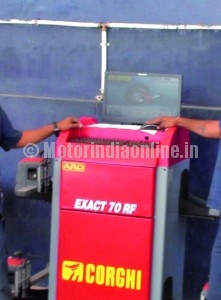
Divyansha Automobiles has three set ups at Bagru, Poato on NH8 and Naseerabad (100 km from Jaipur), manned by senior team members assitded by freshers trained by MAN. Sales calls are coordinated with MAN’s regional office in a ‘defined process manner’. The focus is on world class service, asserts Sandeep and Mukesh. Service also implies easy availability of spare parts – at the right time and at the right place. With a Key Accounts Manager, almost physically present at the dealership, working process is closely monitored to ensure MAN’s uniform style of operation is rolled out irrespective of dealership location and owner profile. Besides conventional haulers for construction and mining industry, special application vehicles such as ambulances, fire brigades, transit mixers, etc. are also hawked through these dealerships.
MAN being a relatively new entrant has to fight for every single sale. Sandeep asserts that service, not pricing, is used as sales and marketing strategy. “Product demonstration is an effective tool,” emphasizes Mukesh, who incidentally has come from selling farm produces at the rural settings across India. “It is an evolutionary process…. Meaning, sales do not take place immediately. But once the end user is fully convinced of our product features after demonstration, it is just question of time before he places an order,” adds Sandeep. As far as scouting for potential clientele, targets are clearly identified and followed up consistently.
In the first six months, Divyansha has managed to sell over 100 vehicles in its zone, despite not-so-good market conditions. MAN trucks are positioned as value-for-money products with special features and everyone is hopeful of making a dent in the marketplace sooner rather than later. “Mind you, these are notrucks, but like passenger cars!” claims Mukesh. Certainly, not off the mark because today, driver comfort is emerging as one of the most critical purchasing decisions in the light of looming shortage of quality drivers.
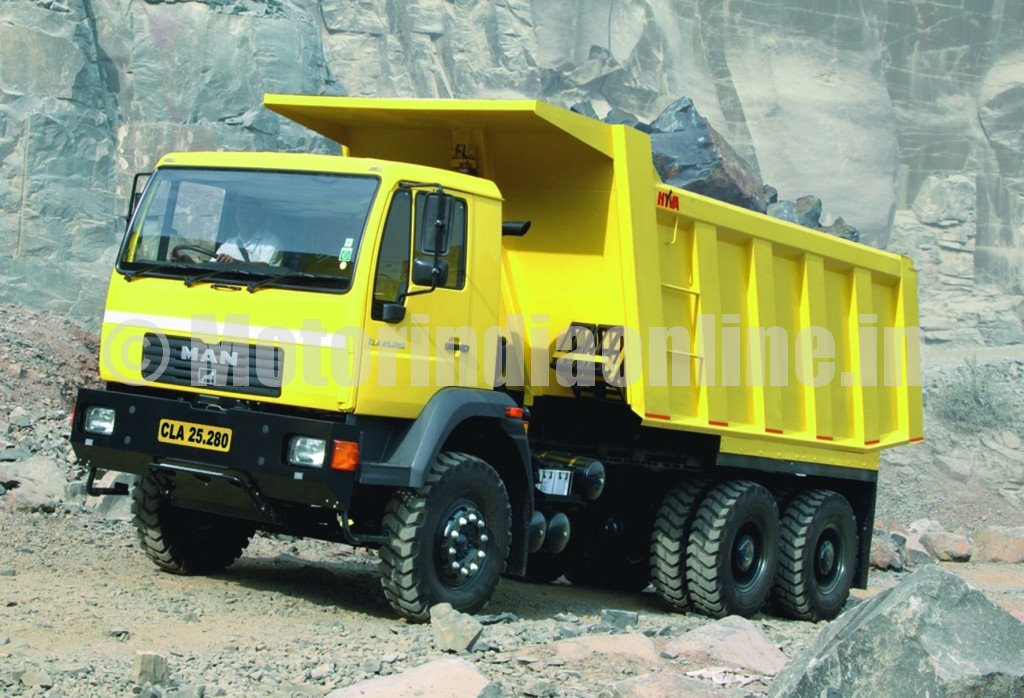
Truck sales continued to fall in India for the 11th month in a row in January as fleet owners postponedreplacement purchases amid costlier lending rates and weak freight demand, according to a recent report. ‘With supply outstripping the current requirement of truck services in the country, coupled with a dip in resalevalue of used trucks by as much as 30 per cent, several truck owners are forced to delay purchase of newvehicles. This, along with stagnant freight rates over the last two months and a dip in demand for tippers andmining trucks due to closure of mines at various locations in the country, resulted in a significant drop in newtruck demand.’
“Manufacturing growth is more or less stagnant. So also exports and imports. Put it differently, movement of materials is low. No movement, no demand for trucks,” elaborates Mukesh. It is estimated that 56 lakh trucks are on Indian roads and replacement demand for trucks is also weak due to this low business potential. Neither the fall in sale of trucks by rivals nor the temporaryshutdown of manufacturing to avoid inventory build-up by them worries Divyansha Automobiles honchos. Sandeep is unperturbed: “Don’t we know this industry is cyclical?” asks he rhetorically.
For successful running of any dealership network, Sandeep expects three qualities viz., dedication, optimistic outlook and innovative ideas. Mukesh is obsessed with quality. “While all trucks are more or less the same, service will be the differentiator,” says he. Promoter Hukumchand Moondra’s obsession with ‘commitment, fairness and total transparency’ in everything, which has rubbed on Sandeep seamlessly, is a sure recipe to carve out MAN’s market share in the burgeoning Indian trucking industry that has begun to see the invasion of global giants –Daimler, Scania, Foton, etc. – on the Indian soil.
Chauhan, Manager-In-Charge of MAN workshop, claims that the entry of foreign trucking companies augurs well for India. “Service levels are improving and availability of genuine spare parts to ensure least vehicle downtime is also another positive outcome,” adds he. The HCV industry is going through a lot of developmental changes, which is of course, good for the country.
Products offered:
CLA 16.220 Construction Tipper
CLA 25.220 Construction Tipper
CLA 25.280 Construction Tipper
CLA 25.280 Mining Tipper
CLA 31.280 Construction Tipper
CLA 31.280 Mining Tipper
Tirecare, the Michelin way
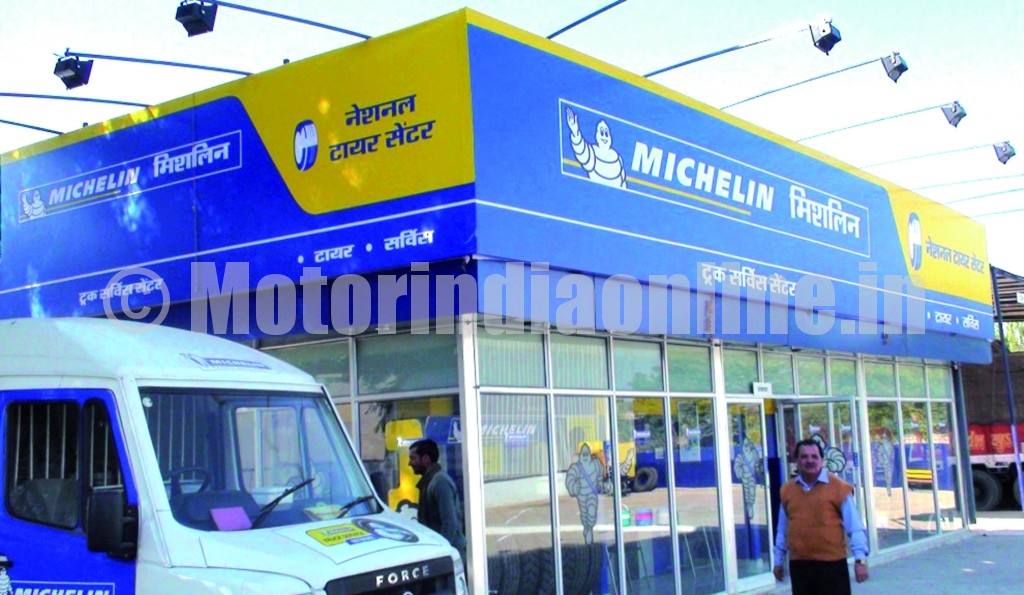
You’ve no reason to know Dhana Ram, working as Mechanic at Michelin Tyre Service Centre situated on National Highway 8 linking Jaipur with Kishangarh within the MAN workshop compound. Under the watchful eyes of Michelin technicians he has mastered the art of wheel alignment, wheel balancing, cut repair, regrooving, retreading, etc. The global tyre major, eyeing the Indian market, offers ‘tyre care’ to all tyres and not only for its own products.

If Brijesh Chandra, managing the show at this centre is to be believed, every one millimeter misalignment of tyre results in seven per cent wear. “Fleet owners fully understand and appreciate the need for tyre care today because safety precautions help them improve their bottomline,” adds he. If fleet owners were laughing at the likes of Brijesh and Michelin a few summers ago, today they don’t.
Michelin Tyre Service Centre offers quarterly maintenance contract. Over the past three and half years, Mishra and team have serviced more than 7,000 trucks (multiply this by the number of tyres in each vehicle. Mindboggling numbers!). Pre-paid quarterly maintenance service is also on tap. Drivers drive in, get their tyre checked six times every quarter and move away.
Thanks to the inroads made by technology into transport industry and back-office automation, fleet owners are fully abreast of the ‘care’ taken by Michelin online and at any time. Moreover, the chances of some drivers ‘fleecing’ motor maliks on spurious expenses en route is totally eliminated. Above all, since the tyre bears the entire load, periodic checks on them enable all stakeholders to ensure the health of vehicle in toto, points out Chandra.
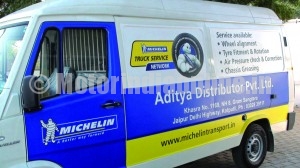
Divyansha Automobiles has established two Michelin truck centres at Kotputli and Bagru. According to Mukesh, the four-month old retreading facility at Bagru is Michelin’s pilot project currently underway. Mobile services are also offered. His workforce is always kept on tenterhooks, thanks to the regular Michelin audits on a quarterly basis.
Chandra is confident of Michelin Tyre Service Centre’s success because of the cost factor. A pair of truck tyres cost approximately Rs.50,000. “Misalignment (of tyres) result in large scale and fast wear and tear which no fleet owner wishes for,” argues Chandra. Those motor maliks who laughed at him in 2009 when the Kotputli facility was opened up, today quietly ask: “How many more km we can run trouble-free and thus save fuel?!”